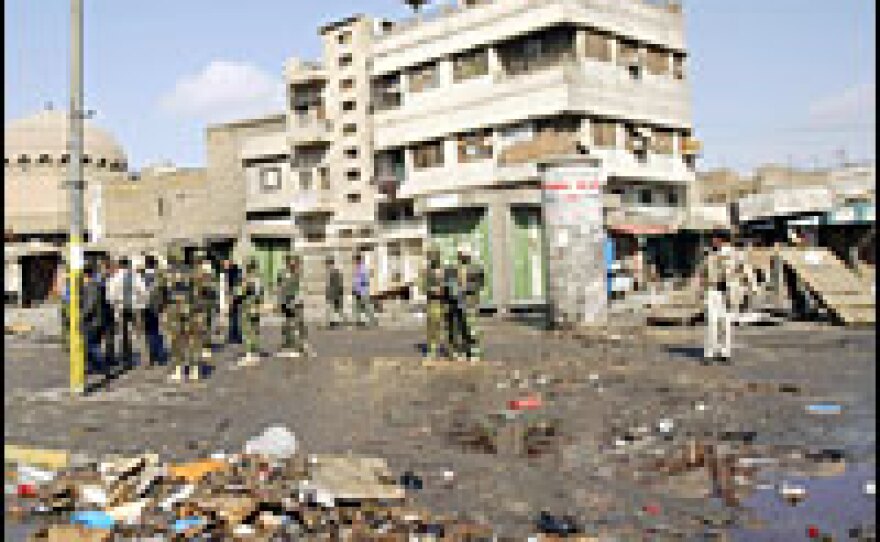
U.S. military officials in Baghdad say they're investigating whether the acting director of a psychiatric hospital in the Iraqi capital was involved with two female suicide bombers who killed nearly 100 people earlier this month.
Fear that al-Qaida in Iraq or other insurgents are using mentally ill Iraqis as bombers swept through the al-Rashad hospital, where records show the two women had been treated. Doctors say the panicked reaction has added to their many problems.
Until this month, the al-Rashad psychiatric hospital in eastern Baghdad was known as just another struggling medical facility, with some 1,200 patients under the care of just eight doctors.
Then, on Feb. 1, two women exploded suicide vests at pet markets in Baghdad, killing 99 people in the bloodiest attack in more than nine months.
Nine days later, U.S. forces raided the hospital, arresting Dr. Sahi Aboub, the facility's acting director, and confiscating computers and medical records. Some media quoted anonymous officials as saying the two suicide bombers had Down syndrome and speculated that the director may have been supplying patients to insurgents.
Several days later, Rear Adm. Gregory Smith, a military spokesman, said there was no evidence that the women had Down syndrome. But, he said, they had been treated for depression or schizophrenia, and the military still thinks al-Qaida in Iraq was pursuing mentally ill patients, possibly through the Rashad doctor, who remains in custody.
"We believe that there are individuals in al-Qaida who may have approached this gentleman and began to work out a relationship where he would provide information about patients. Whether he was involved with these two particular bombers, or more broadly, we don't know yet," Smith said.
At the hospital, fear is now making a bad situation worse. Some doctors are staying home, doors are locked to keep patients from wandering, and services are declining due to the lack of a director.
Two doctors at the hospital say the problems started when the previous director was shot and killed outside his home. The Ministry of Health couldn't find anyone to take the job; salaries weren't being paid and medicine wasn't being restocked. Aboub was persuaded to take over on a temporary basis in mid-January.
One psychologist, who was afraid to give his name, said Aboub wasn't a specialist in psychology and hadn't been at the hospital long enough to understand its workings. He is skeptical, however, about the theory that this newcomer was collaborating with al-Qaida in Iraq.
"It's a kind of fantasy, frankly speaking. It's true we don't know much about this man. But logically, he had no right to admit patients. Plus, he barely knew how the hospital worked, so how could he be selling or smuggling patients? This is so hard to believe," he said.
Still, the possibility that Rashad patients could somehow be linked to suicide bombings has many families wondering what to do.
At the hospital, a hovering security guard won't let a patient give his name, but the patient says he has been at Rashad for two months, suffering from memory loss and depression. He says his family wants him released.
"Of course they are afraid, because there is a lot of talk out there. My family is trying to get me out, God willing, especially because my case is stable now," he says.
While al-Rashad psychiatric hospital struggles without a director, the Iraqi Interior Ministry has ordered police to clear the homeless and mentally ill off Iraq's streets. The campaign has reinforced rumors that the mentally ill could be used in insurgent attacks and has added another layer of fear to daily life in Iraq.
Copyright 2022 NPR. To see more, visit https://www.npr.org. 9(MDAzMjM2NDYzMDEyMzc1Njk5NjAxNzY3OQ001))







